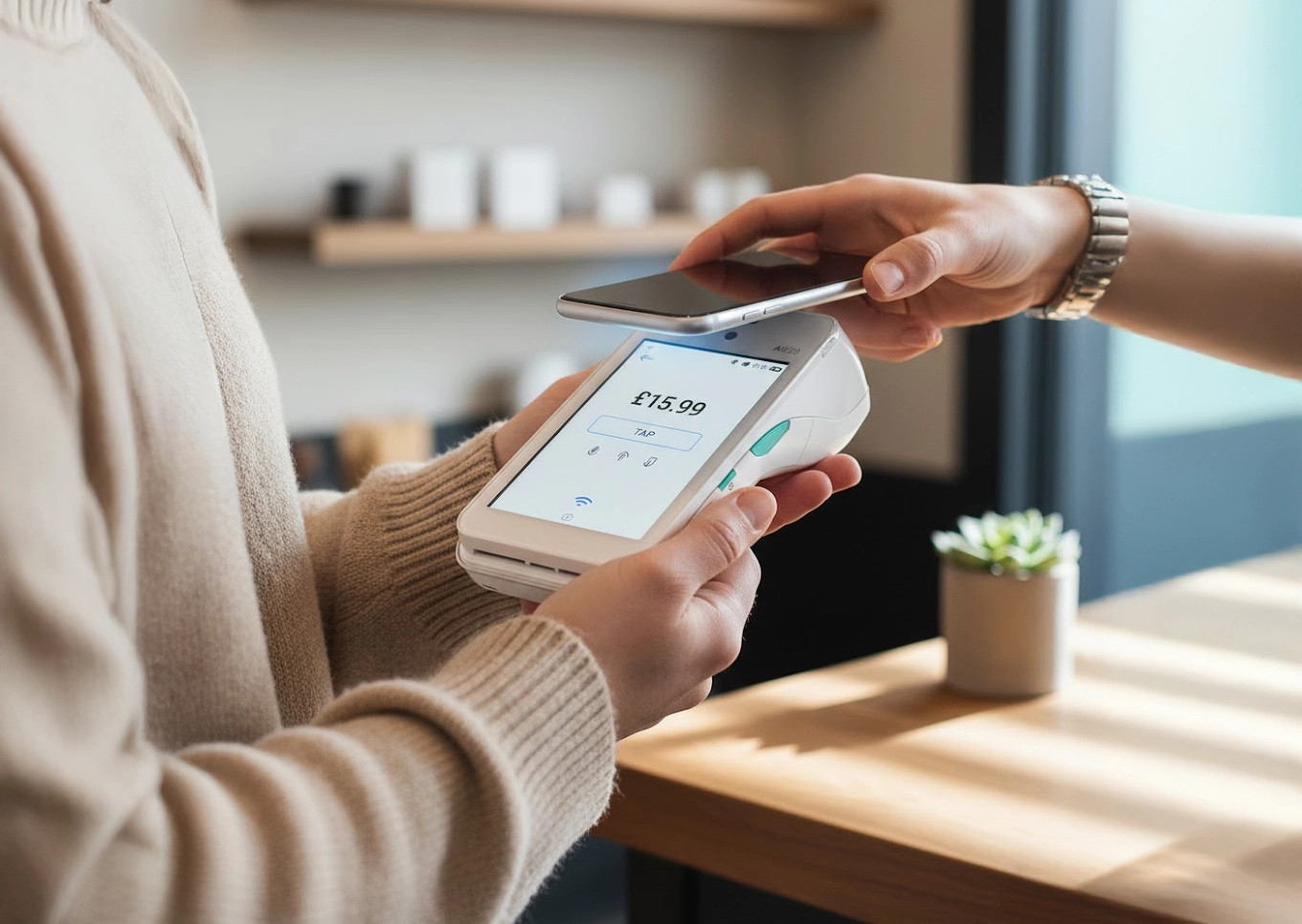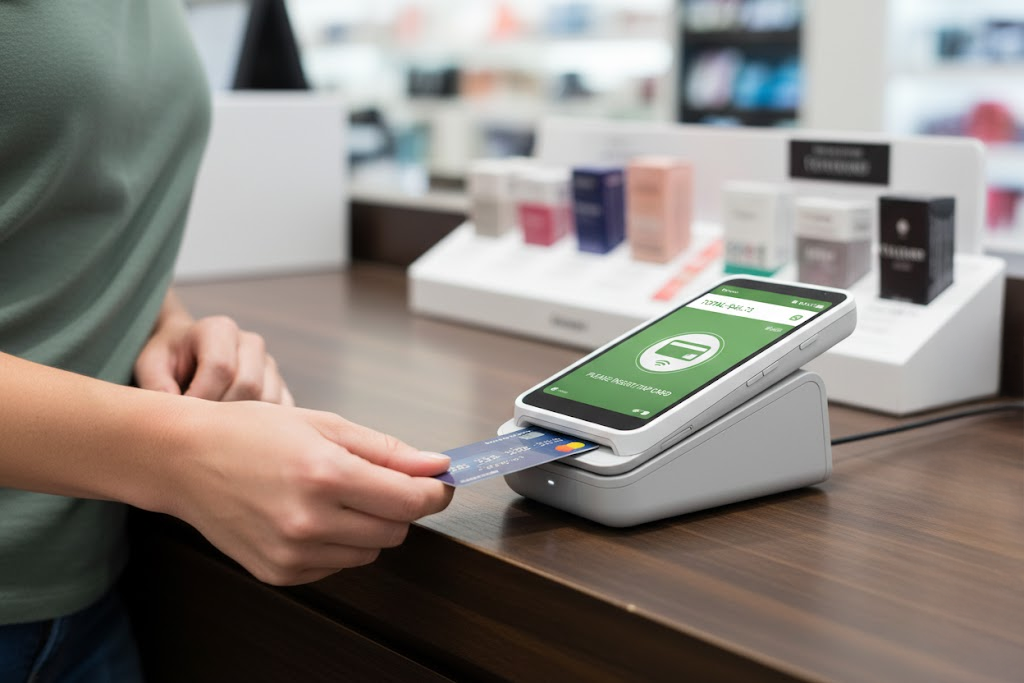
Dojo Card Machine: Independent UK Guide for Businesses
What Is a Dojo Card Machine? A Dojo card machine is a payment terminal supplied as
Get a quote in seconds with our simple form
Last updated 14/10/2025
Credit card chargebacks are essentially a process, a process that protects customers from being wrongfully charged on their credit cards. This is obviously a useful service that prevents wrongful or fraudulent activity.
The thing is, if you’re a business, credit card chargebacks can cause problems. They can mean funds that look like they’re bound for your business can disappear from your merchant account with little warning.
There is, however, some good news…credit card chargebacks can be challenged and reversed.
When a customer disputes a transaction, they can go directly to the bank that provides them with their credit card. The bank in question then investigates their claim and, as part of that investigation, removes the funds in question from your merchant account.
A chargeback process can be started for several reasons, including suspicion of fraud, an incorrect bill or undelivered goods. Whatever the reason, the chargeback process is always initiated by the customer. This is because they are there to protect consumers, rather than businesses, from being charged incorrectly or illegally, so they can often come as a surprise.
As explained above, the chargeback process is always started by the consumer, and the reasons a chargeback may occur are numerous, but include things like:
It goes without saying that your business could ideally do with avoiding chargebacks altogether. With this in mind, we’ve broken down the two main reasons that typically cause people to start the credit card chargeback process.
Credit card fraud. You’ve heard of it. It’s a phrase no business wants to hear, and it’s one of the most common reasons for someone to start the chargeback process. It’s where the consumer fears their card details have been used without their knowledge to purchase from your business. These situations are serious, as you have a responsibility to protect your customers from fraud, so the incidence of fraud can be detrimental. You can, however, put things in place to protect yourself against fraud.
Doing things like conducting extra checks for online purchases, querying a transaction directly with a customer, and using more secure card machines in your shop goes a long way in limiting the chances of fraud.
Other reasons for chargebacks being initiated include damaged goods or shipping issues, both of which lead to customer dissatisfaction. When these things occur, you can sometimes have a case for challenging the chargeback, but when it comes to issues with your product or service, you can do things like track shipping, add additional packaging, or work with a dependable logistics company to mitigate against any issues.
While chargebacks can result in money being refunded, they are not the same as refunds. The main difference between the two is that refunds are optional and controlled by your own refund policy. This means a customer needs to meet the requirements of your refund policy to get one and you give them one at your own discretion.
Chargebacks work differently in that your own policies are inconsequential to the process and, what’s more, a customer doesn’t need to come to you directly when they want to initiate one. When it comes to chargebacks, you don’t have any power. That lies with the credit card company who review the circumstances of the transaction.
While this article focuses on the chargebacks, we also have in-depth guides that fully explain all you need to know about taking payments. Explore below:
While you’re better off mitigating against chargebacks in the first place, they do still sometimes happen, and when they do, your customer’s bank will remove the funds in question from your merchant account. They then contact you to inform you that a chargeback process has been started, and if you accept you’re at fault, you agree with the chargeback challenge, and the refund goes ahead.
If, however, you feel the chargeback is unjustified, there are steps you can take to try to reverse a chargeback.
One of the most important things you will need before you decide to challenge a chargeback is evidence. This can be proof of purchase, proof of shipment, or proof of delivery. You’ll need these things to prove that everything you did was correct and nothing happened to warrant a chargeback.
Once you have collected evidence, you pass it all to the issuing bank, and they review it to assess the validity of the chargeback claim. If the issuer feels the chargeback was indeed unjustified, it will be reversed, and you will keep your money.
If the card issuer does rule in your favour, there could still be an extra step before the matter is settled. This is known as arbitration and occurs when the customer doesn’t agree with the outcome of the investigation.
At this stage, there’s a deeper investigation into the circumstances around the purchase, which can last for several weeks.
Please select the industry that you trade within. This information allows us to tailor your quote.
A chargeback process can be started for several reasons, including suspicion of fraud, an incorrect bill or undelivered goods, and you never know when you might be faced with one. For this reason, you need to take all the measures you can to stop them from occurring in the first place. This could be implementing extra fraud checks at checkout, tracking shipping, or adding additional packaging to your posted goods.
If a chargeback process is started, make sure you have all of the relevant information ready to challenge the request. Without this evidence, you’ll struggle to win any challenge.
Credit card chargebacks occur when a cardholder disputes a transaction with their bank in an attempt to get the transaction money back. Their bank then investigates their claim and, as part of that investigation, they remove the funds in question from your merchant account.
If you feel the chargeback is unjustified, there are steps you can take to try to reverse it. One of the most important things you will need before you decide to challenge a chargeback is evidence. This can be proof of purchase, proof of shipment, or proof of delivery.
You’ll need these things to prove that everything you did was correct and nothing happened to warrant a chargeback.
No, chargebacks are not the same as refunds. Chargebacks work differently in that the policies at your business are inconsequential to the process, and, what’s more, a customer doesn’t need to come to you directly when they want to initiate one.
When it comes to chargebacks, you don’t have any power. That lies with the credit card company, who review the circumstances of the transaction.

What Is a Dojo Card Machine? A Dojo card machine is a payment terminal supplied as

What Are Stripe Payments? Stripe Payments is a payment processing service provided by Stripe that allows

Your business needs a card machine that’s suited to you and your customers: here’s our breakdown




CommercialExperts.com helps savvy UK businesses to save time and money by comparing a wide range of essential products and services.
© TFLI 2025 All rights reserved. Licenced by the Information Commissioners Office, (Registration Number Z3585914) Registered in the UK, number 08424810. Registered Office Address: First Floor, Beechwood Court, Springwood Way, Tytherington Business Park, Macclesfield, Cheshire. SK10 2XG.